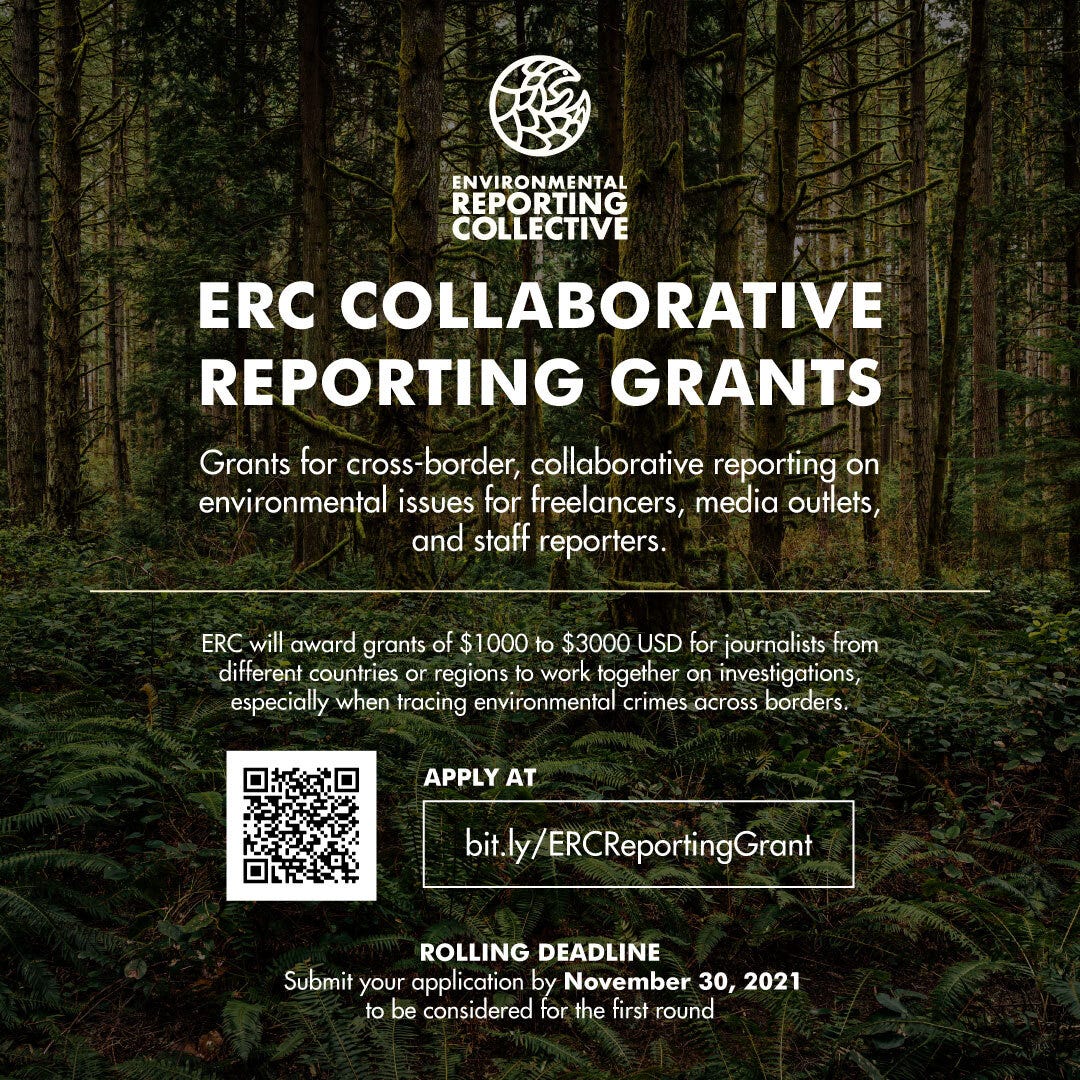Announcing our New Training and Reporting Grant Opportunities
Along with a round-up of funding, reporting and training opportunities.
Welcome to Green Echoes, a newsletter from the Environmental Reporting Collective that highlights key investigative stories, data sources, funding, reporting and training opportunities and our projects from across Asia.
Announcing Two Grant Opportunities from ERC
After focusing for a year on Oceans Inc, we’re ready to announce the next step in our effort to enable collaborative investigative reporting on environmental issues around the world. That is why we’re proud to announce two new grant programs.
ERC Collaborative Reporting Grants
These grants ($1000 to $3000 USD) are specifically aimed at promoting collaboration, and allowing journalists from different countries to work together to fill in gaps in each others’ reporting, especially when tracing environmental crimes across borders. They are open to media outlets, journalists, and freelancers.
Have an idea but don’t have a collaborator? No problem – we can help! Join the ERC Slack Group and propose ideas to our community of over 150 journalists, editors, and media supporters. We can assist in finding a newsroom, or freelancers, to collaborate with in another country.
The deadline is rolling, but we’ll make decision on the first round of applications at the end of November.
ERC Training Grants
These grants (Three of US$2,500 each) are for journalists and newsrooms to organize self-tailored training programs for themselves, but which are also open to other ERC partner newsrooms and journalists.
Grantees will organize the training themselves, with assistance from the ERC Core Team. Applications will be open between 21 Oct and 20 Nov 2021 and the training program should be conducted during December 2021.
Also – if you missed our Oceans Inc webinar last week (which had over 100 attendees) you can watch the recorded live-stream on our Facebook page here.
Other Opportunities and Resources
Ahead of next months Climate Change COP26 meeting in Scotland, Exposing the Invisible has released a guide on investigating climate change adaptation and disasters, encouraging journalists to dig into the concrete key actions from decision-makers and their impacts on communities.
Just launched: the Oxford Climate Journalism Network aims to help journalists, editors, and media executives across the world develop their coverage of climate change, though training, education, and networking. Learn more and apply here.
And the Earth Journalism Network is is offering reporting grants to support the production of in-depth stories that highlight previously untold threats to global biodiversity (deadline 15 Nov).
—
That’s all for this week. We’re always open to including other resources/trainings in this newsletter, so if you have something you’d like us to share, let us know by responding to this email.
Stay safe and healthy,
Nithin Coca
The Environmental Reporting Collective is a growing network of journalists and newsrooms from over a dozen countries, all dedicated to investigating environmental crimes collaboratively.
To learn more about our work, check out our website, Investigative.Earth, and follow us on Twitter and Facebook.



